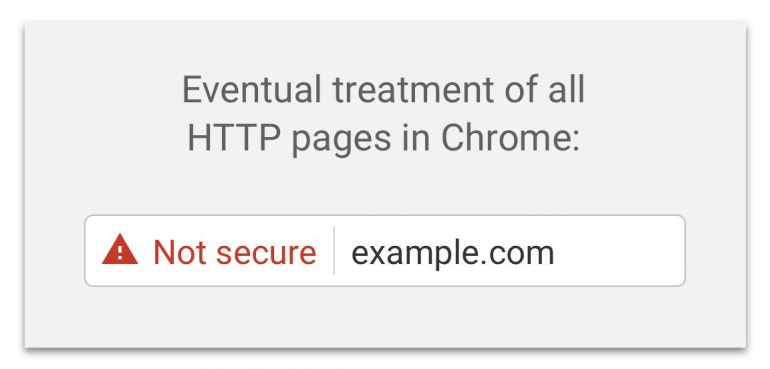Do you need to check your website security and its SSL certificate?
When you enter a website address as ‘www….’, yourbrowser automatically sorts out the jumble of letters at the beginning ‘http://…’.
Because of the increased need for security, websitestandards have been changed to reflect this.
Adding an SSL certificate to your site, means any data sentfrom the web host to the browser remains encrypted. It will:
· Keep data secure
· Build trust in your website
· Encourage Google to show yoursite in search results
This is critical if you have an e-commerce site. Even if you do not, if you are interested in your website being found from keyword searches entered within a search engine, such as Google, having an SSL certificate builds the necessary trust in your site for users to click on it.
If a search engine delivers results for a keyword listing your site and you have the prefix [Not secure] shown in the browser, your site is less likely to be clicked on than if it shows [Secure].
This is an example of a secure website name for our company,SIGAM.
![]()
Compared to a site that does not have an SSL certificate installed:
![]()
Have you ever wondered what the ‘https://’means compared to plain, old ‘http://’?
Without https, it will not always show, but search engines (Google, Bing, etc.) will point out times when you are expected to enter data,such as in forms, which are ‘Not secure’.
In its latest updates, Google advises that it will beexpanding this to all sites in the future, with the following warning symbols.

What does this mean?
SSL means ‘Secure Sockets Layer’. It is a certificate whichforms part of the https protocol, which contains rules for sending andreceiving data between your browser (what you see in Chrome, Mozilla or Opera,etc.) and the server (the data centre where your domain provider holds yourwebsite code). SSL only means information from a server is sent to your browserusing 256-bit encryption. Sites that use SSL safeguard your data better andsearch engines will also rank them higher in their search results.
What can you do about it?
If you do not have an SSL certificate, then we strongly adviseyou to get one. Either contact your domain provider, the company where youpurchased your website or ourselves at SIGAM.
There are many sites which allow you to do this by yourself,just search for ‘Install SSL certs’ in your browser. Alternatively, we can helpyou get set up, simply and cost-effectively.
We will need admin access to your website, and we can then review your site information and advise the cost of updating. We will carry out tests to ensure it is fully operational before going live. Issues we have to consider include whether your site needs to redirect to or from a payment gateway or other critical website, which may have been hard-coded into your website.
The IT industry loves to confuse with its use of acronyms. If you have any questions, then do not hesitate to contact us.
E-mail us on info@sigam.co.ukand someone from SIGAM will make contact to talk you through the necessary steps. One of the team at SIGAM will call you in the next few days to advise what you need to do, if anything.

